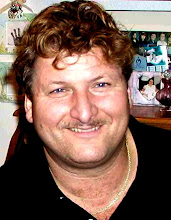'The Revolution Will Not Be Televised'
He is not at all following the Bush/Robertson "Gospel" of KILLING THE TERRORISTS...and letting the private sector take care of those souls whom God has seen it fit not to bless!
I am not now, nor have I ever been a communist....but I can tell you this much, if the options were:
1) Unrestricted, "grab all you can and to hell with the poor"style Capitalism
vs.
2) Even distribution of wealth for all citizens.
I'd be taking option 2!
Someday...maybe people will realize that the communist boogie man was a convenient method to demonize the concept of equitable wealth distribution.
The following article is a description of the 2003 documentary about President Chavez. Again, it's no surprise that the he is criticized as being a "commie" etc. etc. by those who prefer to have a right wing, death squad loving, puppet regime that would cater to the big corporations.
(By the way, don't bother trying to find the DVD for purchase, it's not available anywhere on the internet. Netflix advertises it, but I'm not willing to subscribe to the service to find out if it's actually in stock. If I sound paranoid...it's for a reason, I put nothing past our "leaders" from squelching something like this.)
'The Revolution Will Not Be Televised'
'Revolution' focuses on telegenic Venezuelan
Friday, April 16, 2004
By Barry Paris, Pittsburgh Post-Gazette
Objectivity? Forget the eye of the beholder. In a documentary, it's the eye of the editor that matters. Two different filmmakers can turn the same raw footage into a positive or negative polemic -- fashion a hero or an anti-hero -- depending entirely on their political bias.
A riveting example is "The Revolution Will Not Be Televised," whose ironic title turns out to be happily untrue, thanks to the Irish Film Board duo of Kim Bartley and Donnacha O'Briain. They happened to be in the right place at the right time: Venezue-la during the 2002 coup that briefly deposed President Hugo Chavez.
Venezuela is the world's fourth-largest oil exporter. Chavez is the populist-socialist who was democratically elected on a platform of redistributing the fabulous wealth of Venezuela's 20 percent petro-elite, at least in part, to its 80 percent of the poor. From Day One in office, Chavez was despised by the oil barons of his own nation and by the Bush administration, whose unrestricted capitalist "globalization" he opposed.
A much greater offense to the Yankees came in October 2001. Just a few weeks after the 9/11 terrorist attacks and a few days into the war against Afghanistan, Chavez delivered an extraordinary television address to Venezuela -- AND the United States:
"We support the war against terrorism ... Let us find the terrorists -- but not like this," he said, holding up a grisly wire-service photo of Afghani children killed by American bombs intended for the Taliban.
"They say it was a mistake," he continued. "Are they going to keep making these mistakes? We demand that you think before you act. You cannot fight terror with more terror."
If non grata in Washington before, Chavez was now fully demonized. Jesse Helms accused him of "consorting with narco-terrorists in Colombia." Colin Powell and Ari Fleischer endorsed the fear and loathing of his "road toward Castroism."
There was no truth to the former and some to the latter charge. An unabashed admirer of Fidel and Che, Chavez echoed their prioritizing of universal literacy ("First you must start reading!") in his ongoing poetic exhortations to the peasantry. But unlike the Cubans, Chavez's literary sensitivity and gentle personality allowed for no media censorship, no jailing of political enemies, no outlawing of opposition parties, and -- once restored to office -- no punishment even of the perpetrators of the coup against him.
Tribute must be paid to Venezuelan civility in general. Short-lived oil-puppet President Pedro Carmona dissolved parliament and the supreme court, but he was no Pinochet. Instead of Chavez being murdered, as the Chilean military did Allende, he was hauled off to an island but returned, soon enough, in good health.
It was a rare case of a military establishment doing the right democratic thing, with that even rarer thing in Latin American history: a happy ending. There's a slightly comic "Mouse That Roared" touch to it, which is not to trivialize its seriousness or its astonishing behind-the-scenes footage, shot before, during and after the coup.
Bartley and O'Briain had amazing access to everything and everybody, the connivances and the chaos, and condensed it into 74 tight minutes. It's a bit too adoring of Chavez, but ... well, he IS rather adorable. You may not think so. See it and decide for yourself.
Meanwhile, my favorite quote in the film is uttered by CIA director George Tenet (that clueless handler of pre-9/11 and Iraqi WMD intelligence): "I would say that Mr. Chavez doesn't have the interests of the United States at heart." As any GOOD Venezuelan president should and would, of course.


0 Comments:
Post a Comment
<< Home